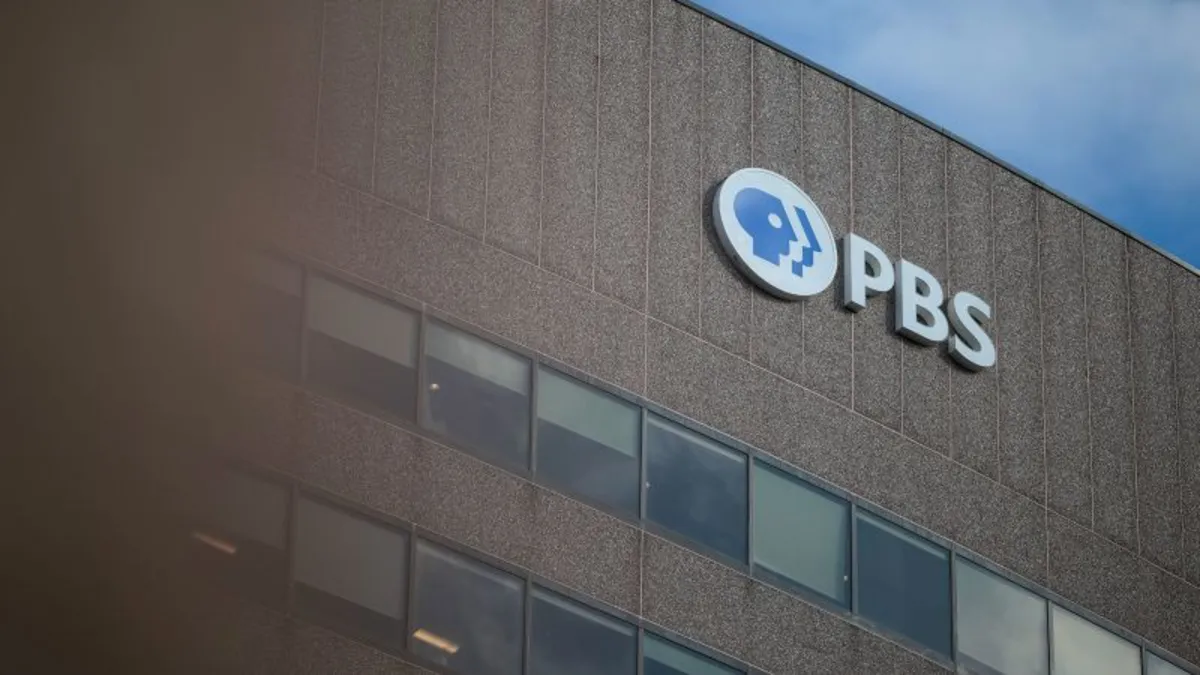
In a shocking turn of events, public television stations are now facing a severe funding crisis, as PBS CEO Paula Kerger announced on Thursday. This announcement follows the Senate's late-night vote to approve a bill that completely cancels federal funding for the network. With the House expected to pass the bill, the Corporation for Public Broadcasting will see its budget reduced to zero for the first time since 1967, a year when television was still broadcast in black and white.
This decision marks a significant victory for President Trump, who has long criticized PBS and NPR newscasts for alleged bias. The elimination of federal support poses a daunting challenge for local stations that rely on taxpayer funds. Public media executives are warning that many smaller broadcasters could be forced off the air in the coming months and years, particularly those in rural areas and smaller communities that depend heavily on this federal subsidy.
Kerger emphasized the devastating impact these cuts will have, stating, “These cuts will significantly impact all of our stations, but will be especially devastating to smaller stations and those serving large rural areas.” She highlighted the essential role these stations play in providing access to free, unique local programming and crucial emergency alerts.
While the majority of Republican senators focused on accusations of bias in public media, two Republican senators, Lisa Murkowski and Susan Collins, voted against the rescission, recognizing the value of public media. Their stance reflects the ongoing debate about the role of public broadcasting in the modern media landscape. Many Republicans argue that public media is outdated in the streaming age, while critics assert that this perspective overlooks the significant contributions of public broadcasters.
David Bozell, president of the Media Research Center, celebrated the Senate's actions as a “historic rollback.” He criticized PBS and NPR for straying from their original mission of providing objective journalism. According to Bozell, “Instead, we got drag shows for kids, gushing coverage of Democrats, and silence or smears for conservatives.” However, public media officials argue that these criticisms misrepresent the actual content aired on their stations.
In response to the funding cuts, America’s Public Television Stations, an advocacy group, contended that the rescission “defies the will of the American people.” They cited polling data that demonstrates broad public support for public media and pointed out that Congress had already allocated funding for the upcoming year. Established in 1967, the Corporation for Public Broadcasting was created to serve the public interest through noncommercial TV and radio for educational and cultural purposes.
Over the years, shows like “Sesame Street” and “Antiques Roadshow” have become staples of public media, which historically enjoyed bipartisan support. Previous Republican administrations had attempted to cut PBS and NPR budgets, but Congress consistently resisted these efforts. However, Trump's administration has taken a more aggressive stance in pursuing these cuts.
The impacts of this funding loss remain uncertain due to the complex structure of public media and its various revenue streams. However, some local stations are already adapting to the new realities. For instance, in New York, the operator of NPR station WNYC announced that its CEO, LaFontaine Oliver, will transition to a new role as executive chair, focusing on developing new funding models and seeking support from non-federal sources.
In San Francisco, KQED, a major radio and TV network, announced layoffs affecting approximately 15 percent of its staff due to financial uncertainties. Despite these setbacks, Kerger remains resolute, stating, “Despite today’s setback, we are determined to keep fighting to preserve the essential services we provide to the American public.”